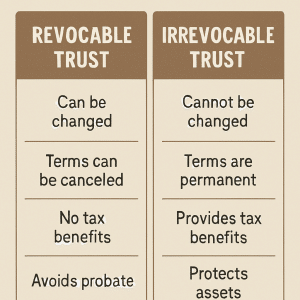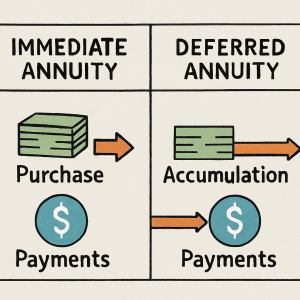What is a Recession?
A recession is typically defined as a period of at least six months when the economy experiences negative growth for two consecutive quarters. Several factors can contribute to this, such as reduced consumer spending, increased taxes, and interest rate hikes.
Within the intricate workings of the economy, recessions emerge as significant downturns and test the resilience of nations. While it is clear recessions are not a good thing; providing a precise definition of a recession proves to be more difficult.
What Happens During a Recession?
When the economy slows down, businesses are often the first to bear the brunt. They may witness declining sales, narrower profit margins, and restricted access to capital. Consequently, layoffs, reduced working hours, and even business closures become commonplace.
Unfortunately, the impact trickles down to workers as well. Job losses are one of the most devastating consequences of a recession. Whether due to widespread layoffs or industry-specific downturns, many individuals find themselves unemployed. As a result, unemployment rates surge as people actively seek new job opportunities.
The effects of a recession can extend far and wide, leaving long-lasting implications. The question then arises: how can you protect yourself and your business? If you are concerned about an impending recession, there are proactive steps you can take to prepare.
These include diversifying your products or services, building cash reserves, and reducing business expenses. On an individual level, saving more money and paying off debt are prudent strategies.
What Causes Recessions?
Recessions can stem from various factors, including economic bubbles, financial crises, external shocks, and monetary policy decisions. Economic bubbles occur when prices of goods or assets rise to unsustainable levels before inevitably bursting, leading to a significant economic downturn.
Financial crises, resulting from inadequate regulation, excessive debt, and speculative investments, can also trigger a recession. Additionally, external shocks like wars, natural disasters, or pandemics have the potential to disrupt the economy.
Furthermore, the actions of central banks, such as increasing interest rates or reducing the money supply, can contribute to a recession.
Effects of a Recession
Recessions exert diverse effects on different sectors of the economy. Here are some key repercussions:
Job Losses: Businesses struggle to maintain profitability during a recession, often resulting in layoffs and job losses. Unemployment rates tend to rise significantly during these challenging times.
Reduced Consumer Spending: Consumers become more cautious with their money during a recession, leading to reduced spending. This decline in consumer demand further hampers economic activities.
Reduced Business Investment: Businesses tend to curtail their investments during a recession, which subsequently lowers overall economic activity.
A decline in Asset Prices: Asset prices, including housing and stocks, typically experience a decline during a recession. Fewer people are willing to buy homes, leading to a decrease in housing prices. Simultaneously, stock prices are also affected by the economic downturn.
Stages of a Recession
A recession unfolds in various stages, each marked by specific characteristics:
- Economic Slowdown: Economic activities gradually decelerate, causing a decline in consumer spending and business investment.
- Job Losses: Businesses face financial difficulties, resulting in layoffs and job losses for employees.
- Reduced Consumer Spending: Consumers become more cautious and cut back on their spending, further contributing to the decline in economic activities.
- Government Intervention: Governments may step in by implementing stimulus packages, tax cuts, and monetary policies to stimulate economic growth.
How to Survive a Recession:
While surviving a recession can be challenging, it is not impossible. By adopting proactive measures, you can better navigate the turbulent times. Here are some essential tips:
- Build an Emergency Fund: Having an emergency fund is crucial to weather financial uncertainties during a recession. Aim to save enough to cover your living expenses for at least six months. This fund can provide a safety net and peace of mind during challenging times.
- Reduce Debt: High levels of debt can become a significant burden during a recession. Prioritize paying off your debts as much as possible. By reducing your financial obligations, you can alleviate some of the financial strain and free up resources for other essential needs.
- Cut Back on Expenses: Take a closer look at your expenses and identify areas where you can make cuts. Trim unnecessary spending and focus on essential items. Evaluate your budget and prioritize needs over wants. Every dollar saved can make a difference during a recession.
- Diversify Your Income: Relying solely on one income source can be risky during a recession. Explore opportunities to diversify your income streams. Consider taking on a part-time job or starting a side business that aligns with your skills and interests. Diversifying your income can provide additional stability and cushion against economic downturns.
- Stay Informed: Stay updated with the latest economic news, trends, and forecasts. Knowledge is power, and staying informed can help you make better financial decisions. Understand the potential impacts of a recession on your industry, job market, and investments. Stay proactive and adjust your strategies accordingly.
- Seek Professional Help: If you find yourself struggling financially during a recession, do not hesitate to seek professional help. A financial advisor or counselor can provide guidance tailored to your specific situation. They can help you navigate financial challenges, create a personalized plan, and offer valuable insights.
Frequently Asked Questions:
Conclusion:
Prepare for a recession with an emergency fund, reduced debt, expense cuts, diversified income, and professional guidance. Be proactive to increase resilience and navigate challenges with confidence. Remember to focus on long-term success. Stay resilient, adapt, and focus on opportunities even during difficult times.















